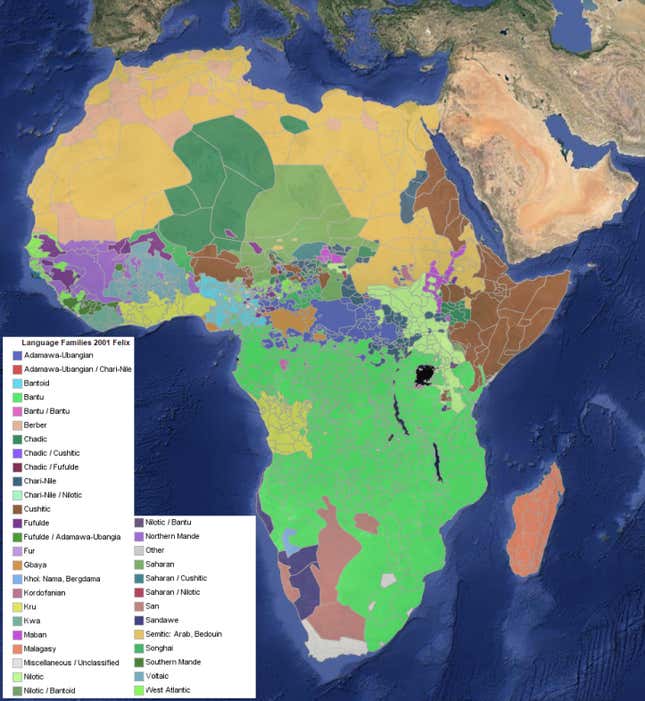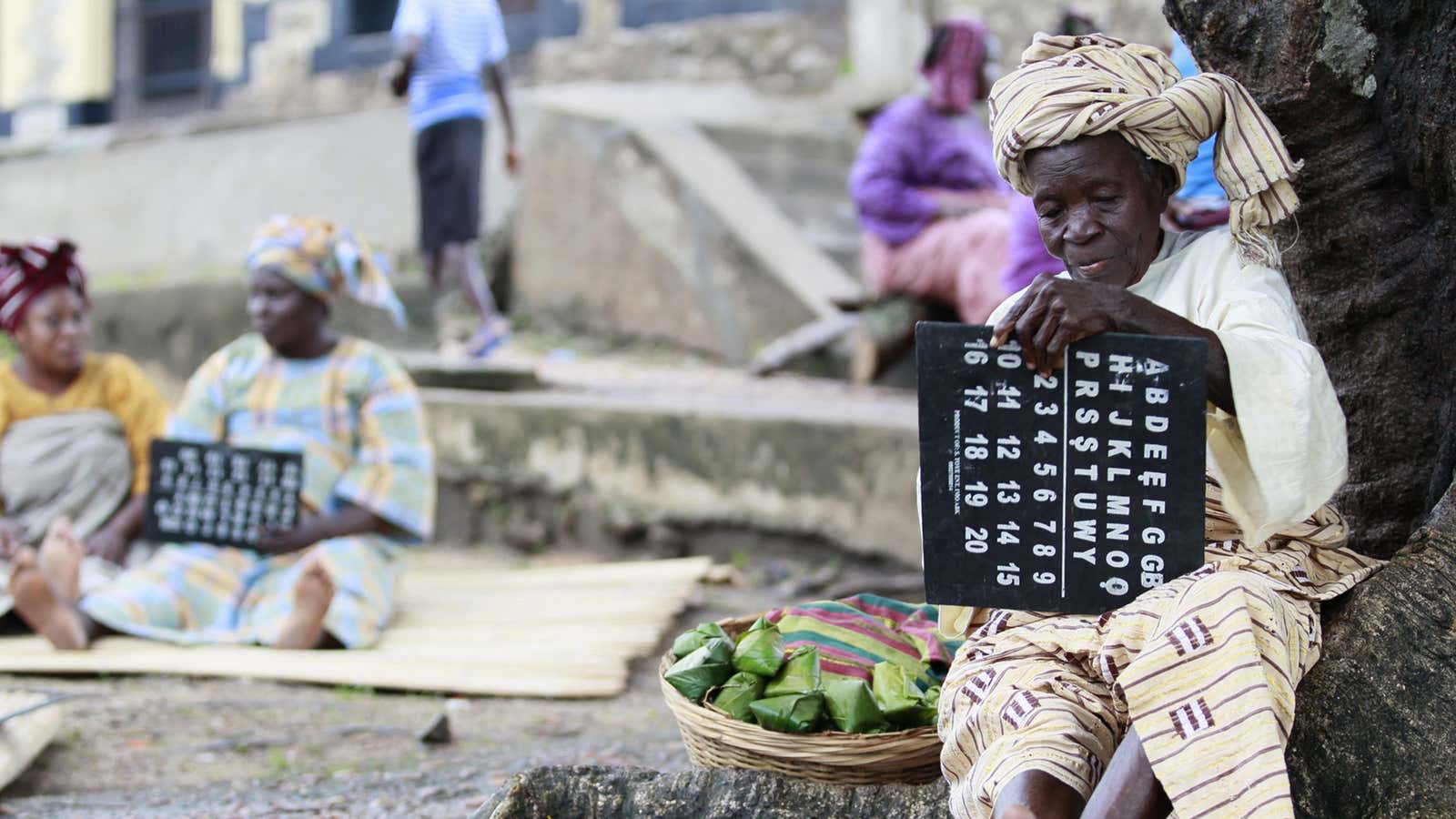In 2008, on his first visit to China and India after taking office as prime minister, Britain’s Gordon Brown announced a plan to promote the English language across the world. Brown said he launched a website that would develop the skills of 750,000 teachers, and help two billion people learn English by 2020.
“English does not make us all the same,” Brown noted, but “it makes it possible for us to speak to each other, to better understand each other and so it is a powerful force not just for economics, business, and trade but for mutual respect and progress.”
Brown’s radical plan was considered one of the biggest initiatives in recent times to endorse English as a global language. But 60 years after independence, that’s a luxury rarely afforded to the majority of African languages. Instead of securing a firm place in our daily lives, indigenous languages have instead suffered delegitimization at social, economic, and political spheres. The expanded study of African languages has also been recent, with a majority of the scholarship taking place in European and North American universities. Significant books about Africa’s languages and literary explorations are mostly published by Western publishers like Harvard University, Ohio, and Oxford University Press.
Besides, much of the literature about the history of African languages is also inaccessible to young people—and readers—across the continent. And while research shows the cognitive advantage of knowing more than one language, students of African languages at higher institutions have drastically diminished over the years. As such, the debates about who defines a language, who can claim it, and how it affects a community or a country’s past and present is not being probed or vigorously unpacked.
First, understanding the historic background of African languages allows us to draw the complex dimensions of their evolution. For instance, Swahili is influenced by the confluence of what the late African studies professor Ali Mazrui called the “triple heritage,” namely the indigenous Bantu languages and identity, Islamic religion, and Western traditions. With almost 100 million speakers, Swahili has grown to be Africa’s most “internationally recognized language.”
Yet the gendered dimension of Swahili is rarely acknowledged, especially how women advanced the language. As Harvard professor John Mugane shows in his book The Story of Swahili, the writings, interpretations, and performances of the Swahili women, and how they passed them on to their children made them the “ultimate connoisseurs of Swahili arts.” These women included poets like Mwana Kupona, traders like Mwana Hidaya, and artists like Siti Binti Saad, who was born a slave but went on to produce gramophone records of taarab music in India. Together, Mugane writes, they nurtured “a Bantu dialect into the international language that Swahili is today.”
Secondly, languages also play an important role in helping us construct a nuanced version of our identities. For example, Afrikaans has historically been labeled as a language of white oppression and apartheid rule. Yet today, the majority of its speakers in South Africa and beyond are not white, and research shows us that it was used as part of the anti-apartheid liberation movement. In fact, a form of Afrikaans written in Arabic script was found in prayers books used by Muslims in Cape Town in the nineteenth century—a historical narrative that was hidden until recently to the vast majority of South Africans.

Thirdly, understanding the history and place of African languages also helps advance linguistic decolonization. The Kenyan writer Ngũgĩ wa Thiong’o has famously championed the cause of decolonizing our minds, turning from writing in English to his native Gikuyu and Swahili. Yet much of the debate has failed to move beyond European languages like French and English.
A case in example is the Berber language of Tamazight, and how North African nations have undermined it for decades under the guise of Arabization. The situation there was so bad that governments like Morocco even refused to issue birth certificates with Berber names, according to Human Rights Watch. The practice of undermining the language of the Amazigh people not only enforced exclusionary policies but also risked endangering the passing of a very important language to future generations. But after years of persecution, the Berber language finally became an official language in Morocco in 2011 and the same in Algeria in 2016.
Finally, understanding the dynamism of African languages helps elevate our artistic and cultural production. Language, after all, is the conduit through which we communicate complex ideas whether in comedy, movies, advertising, music, novels, or beyond.
Jim Chuchu, the award-winning director of the Kenyan web series Tuko Macho used the conversational code-switching inherent in Sheng, a slang that combines both English and Swahili. When Quartz interviewed him about the choice of using Sheng, Chuchu said he always wondered “why Kenyan TV and films always have this stiff English and stiff Swahili which no one really speaks in Kenya.” The choice of using Sheng, in this case, was about grasping how our languages evolve over time, and how we can use them to produce art that is cognizant of today’s challenges and tomorrow’s promises.
Across the world, African languages are slowly taking the center stage and are being recognized for their importance. For instance, you can now learn Zulu on an app, read a growing list of articles in African languages on Wikipedia, and receive thousands of dollars in awards for your fictional Swahili piece or poem. And many universities from Ethiopia to South Africa are making African languages like Afan Oromo and isiXhosa a compulsory subject.
But Africa still has some of the world’s highest concentration of at-risk languages. And that can be reversed by first understanding and studying the past history, present evolution, and future use of these languages.
